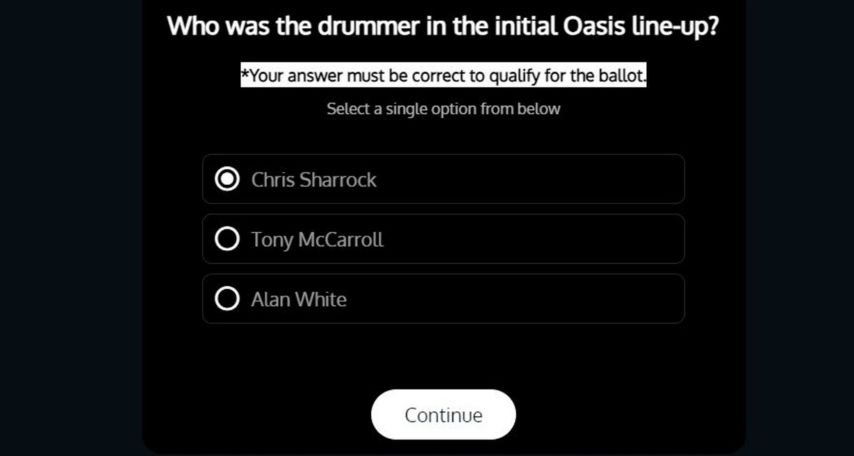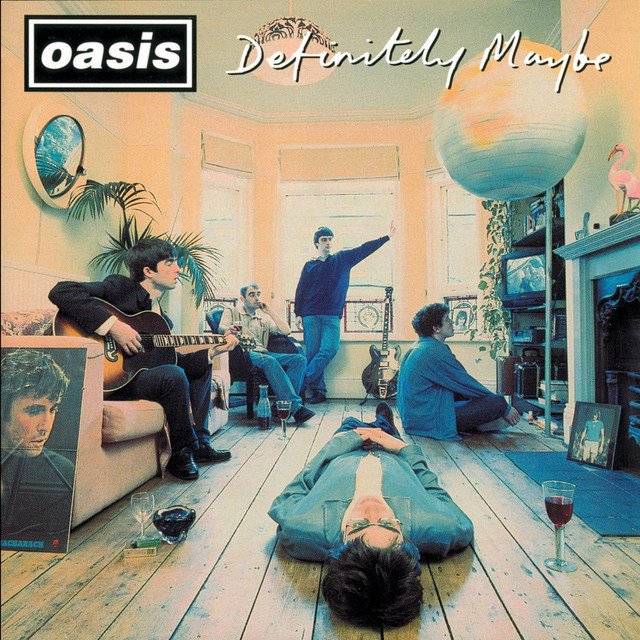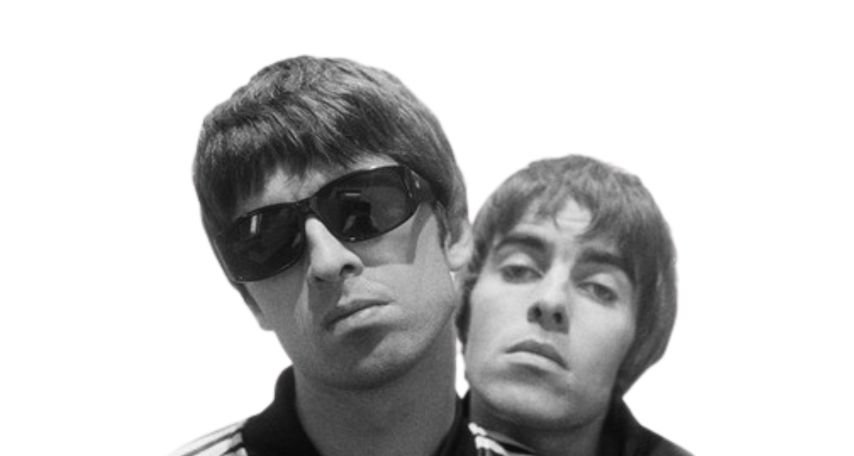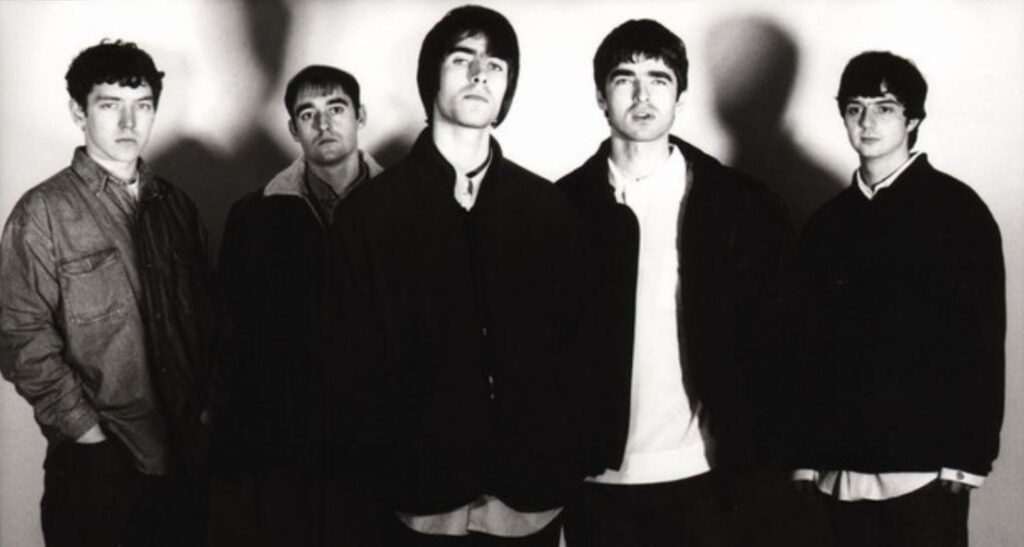Oasis Reunion Announcement Sparks Massive Interest
The air is electric with anticipation. Oasis, the band that defined a generation with its raw, anthemic sound, has just announced a reunion, sending shockwaves through the music world.
For the first time in years, fans have a chance to relive the glory days of Britpop, but with a catch: to secure a ticket, you had to correctly answer one simple yet pivotal question—Who was the original Oasis drummer?

Search Spike: Over a Million Queries for Tony McCarroll
Within hours of the pre-sale ballot opening, Google searches for “original Oasis drummer” skyrocketed to over one million.

This seemingly straightforward query reignited interest in Tony McCarroll, the drummer whose rhythms laid the foundation for Oasis’s early success.
The frenzy surrounding this question highlights not just McCarroll’s place in music history but also the ongoing cultural impact Oasis continues to wield decades after their debut.
The Power of Nostalgia in Music
But why such an uproar over a single question? The answer lies in the power of nostalgia.
The 90s were a time when Oasis ruled the airwaves, and their music became the soundtrack for an entire generation.
The band’s return isn’t just about revisiting the past; it’s about reconnecting with the memories that their music evokes—memories of youth, rebellion, and a time when anything seemed possible.
For many, the chance to see Oasis live again in their homeland feels like a rare opportunity to step back into those formative years.
Tony McCarroll: The Drummer Who Defined Oasis’s Early Sound

Tony McCarroll’s sudden resurgence in popularity underscores this yearning for the past.
Though his time with Oasis was relatively brief, his drumming was integral to the band’s debut album, Definitely Maybe, which catapulted them to stardom.
His straightforward, no-frills style was the backbone of tracks like “Supersonic” and “Rock ‘n’ Roll Star,” songs that remain timeless anthems of the Britpop era.
Yet, for years, McCarroll was somewhat overshadowed by the band’s later members, particularly by drummer Alan White, who replaced him during the recording of their second album, (What’s the Story) Morning Glory?
The Reunion’s Cultural Significance and Its Broader Impact
The reunion has brought McCarroll back into the spotlight, not just as a piece of trivia but as a key figure in the Oasis story.
His name is now being searched by millions, reflecting how deeply fans cherish every detail of the band’s history.
The spike in searches reveals something deeper: a collective desire to reconnect with the original magic of Oasis, to remember not just the songs but the people who made them.
Oasis: More Than Just Music, A Cultural Phenomenon
In many ways, this renewed interest in the original Oasis lineup mirrors the broader cultural impact of the reunion.
It’s not just about a band getting back together; it’s about the revival of an entire cultural moment.
Oasis was more than just music; they were a symbol of 90s youth culture, of working-class pride, and of a defiant attitude that resonated across the UK and beyond.
The reunion taps into that energy, pulling it into the present and offering fans a chance to relive it all over again.
Fan Demand Exceeds Supply: The Ticket Frenzy
As the reunion tour dates approach, the buzz only intensifies. Fans, both old and new, are scrambling to secure tickets, knowing full well that the demand far exceeds the supply.
With over five million searches for “Oasis” since the announcement, it’s clear that the band’s influence has not waned.
But the frenzy over Tony McCarroll’s role in the original lineup adds an intriguing layer to the story, highlighting how much Oasis’s legacy is intertwined with the memories of its earliest days.
The Britpop Era: Oasis’s Role in 90s Youth Culture
For those who lived through the Britpop era, Oasis was more than just a band; they were a cultural phenomenon.
Their music captured the angst and aspirations of a generation that grew up in the shadow of Thatcher’s Britain during a time of profound social and economic change.
Songs like “Live Forever” and “Cigarettes & Alcohol” weren’t just hits—they were anthems that spoke to the heart of working-class Britain, embodying a spirit of defiance and optimism that resonated deeply with fans.
The Fascination with Tony McCarroll: Beyond the Music
Tony McCarroll, though often seen as a peripheral figure compared to the Gallagher brothers, played a crucial role in shaping that sound.
His drumming on Definitely Maybe provided the driving force behind some of the band’s most iconic tracks.
It was raw, powerful, and unpretentious—qualities that mirrored the band’s ethos and endeared them to millions of fans.
The recent surge in interest around McCarroll suggests that for many, he represents the purity of the band’s early days, before the fame, feuds, and line-up changes that would come later.
The Modern Fan Experience: From Nostalgia to Knowledge
But the fascination with McCarroll isn’t just about nostalgia for the music.
It’s also a reflection of how fans are increasingly interested in the stories behind the songs.
In an age where access to information is instant and the internet allows for endless deep dives into history, fans are no longer content to simply listen—they want to understand, to know the full picture.
The fact that the pre-sale ballot question revolved around McCarroll is a nod to this new dynamic in fan engagement, where knowledge and loyalty are rewarded.
Social Media and the Oasis Reunion: Amplifying the Buzz
As social media continues to fuel the reunion’s momentum, the cultural impact of Oasis’s return becomes even more apparent.
The announcement video alone racked up over 71 million views on Instagram, highlighting the band’s enduring popularity and the power of digital platforms in reigniting interest in legacy acts.
Unlike in the 90s, when fan interactions were limited to live shows, magazines, and the occasional TV appearance, today’s fans are part of a global community that can share, discuss, and dissect every detail of the reunion in real-time.
Reflecting on Oasis’s Legacy: More Than Just a Reunion
This shift in fan culture has also influenced the way the reunion is perceived.
While the music remains at the core, the narrative surrounding the band—their history, their dynamics, and their individual members—has become just as important.
Tony McCarroll’s resurgence is a perfect example of this. In many ways, he’s become a symbol of the band’s humble beginnings, a reminder of where it all started.
For fans, especially those who have been with the band since the early days, this reunion isn’t just about reliving the past; it’s about acknowledging the journey, the highs, the lows, and the people who were there along the way.

The Enduring Influence of Oasis on Music and Culture
As the world awaits the first notes of the reunion tour, one thing is clear: Oasis’s impact on music and culture is as potent as ever.
The frenzy over the original drummer is more than just a blip in search trends—it’s a sign of how deeply embedded the band is in the fabric of British music history.
And as fans prepare to gather once again, the nostalgia that drives them is not just a longing for the past but a celebration of a legacy that continues to shape the present.


